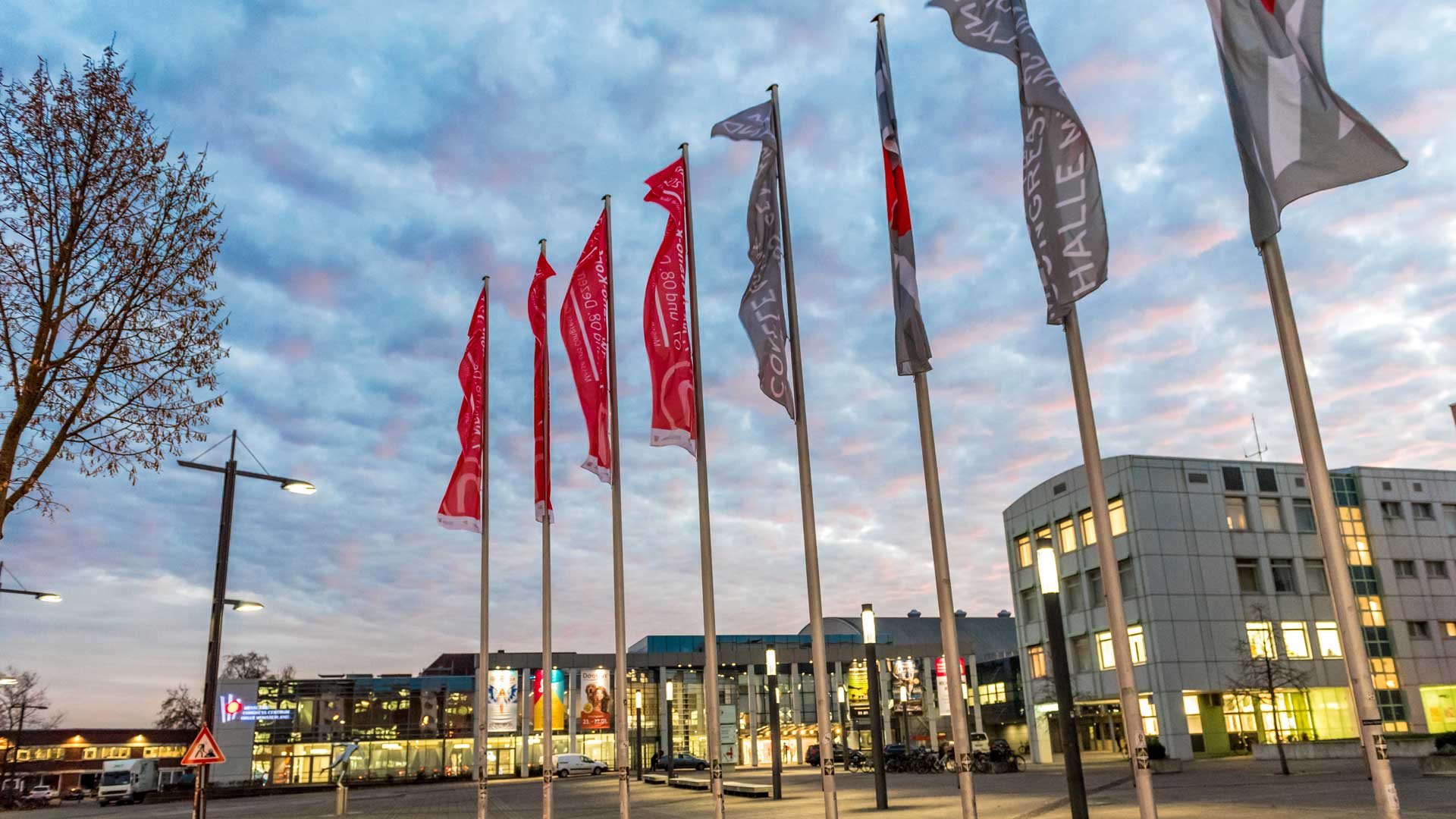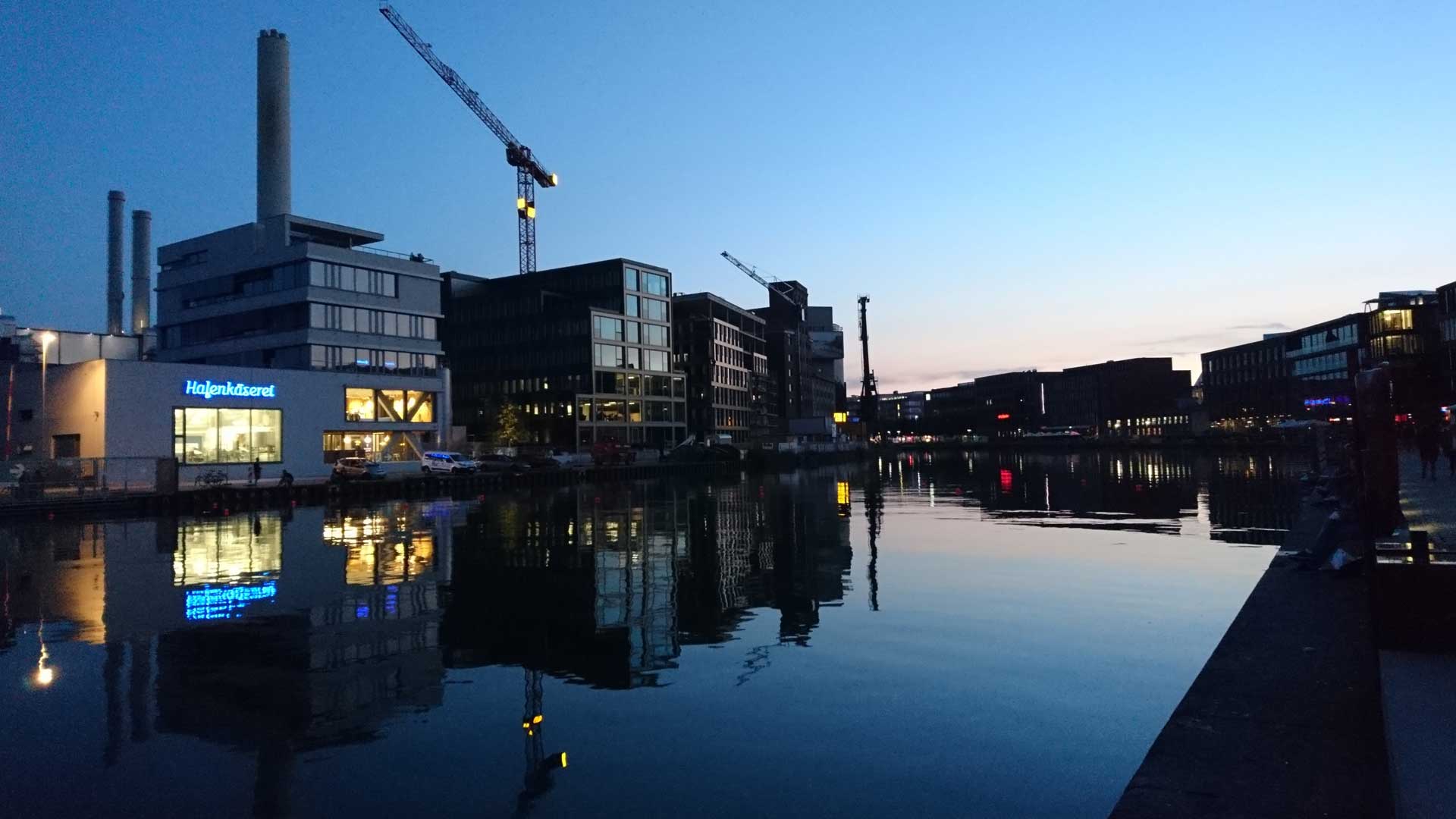The City of Münster
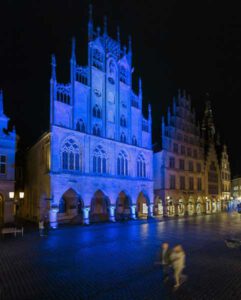
MünsterView
A city of science and sculptures, birthplace of the Peace of Westphalia, bicycle capital of Germany, member of the Hanseatic League – Münster is a vivacious city of many facets and surprising contrasts: Picasso behind Westphalian noble estates, Baroque jewels next to icons of modern architecture, exquisite shopping expeditions underneath the arcades and one of the most beautiful farmer’s markets in Europe. Münster’s charm lies in the fascinating mixture of dignified traditions and modern-day Savoir-vivre.
The city has been a congress location since the 17th century, when Münster hosted the parley for the Westphalian Peace, ending the 30-year War in 1648. The successful completion of the peace treaty is part of world history – negotiated and signed in the Hall of Peace of Münster’s town hall.
Our Westphalian metropolis is still a strong and innovative location for business and industry, a vibrant centre of student life, a modern city with unique shopping facilities – in short, a healthy, green, and particularly liveable city! Almost 60.000 students are enrolled in Münster’s nine colleges and universities, and thus supply the venerable Hanseatic city with a youthful face and a steady stream of newcomers, preventing it from ever growing old and stiff.
Nanotechnology and battery research
in Münster
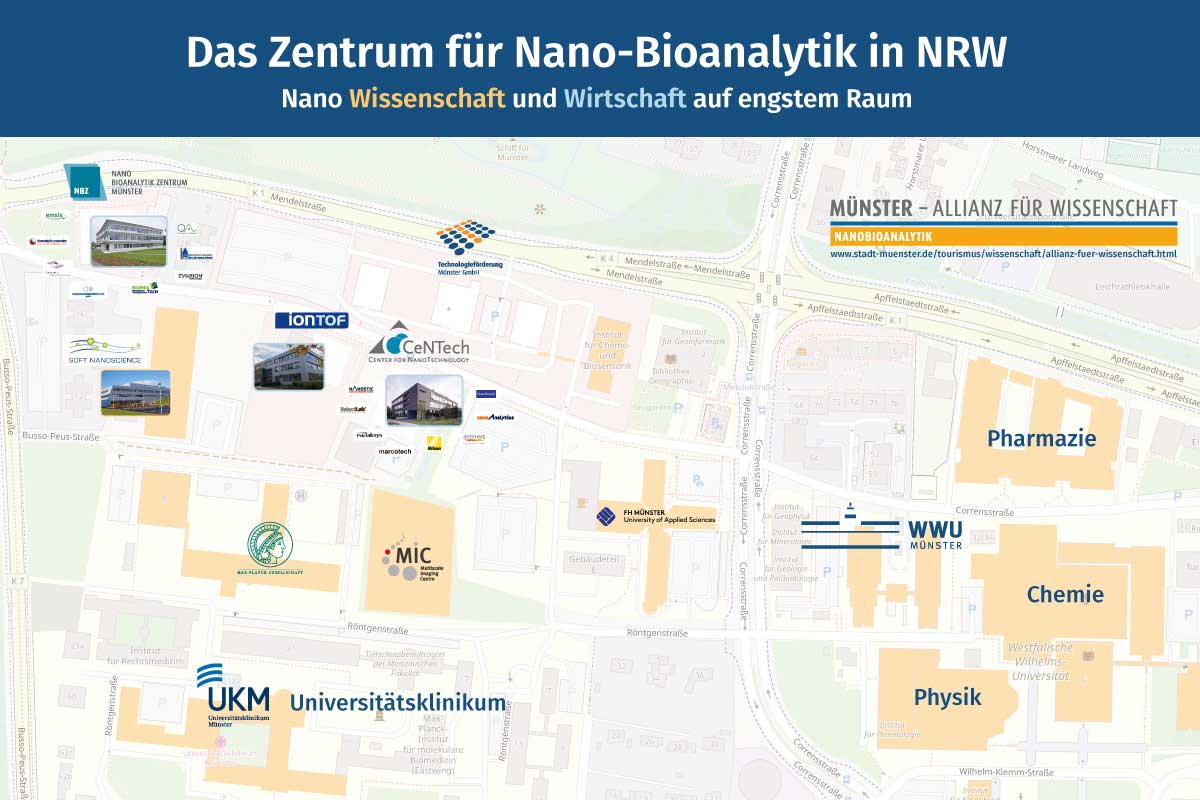
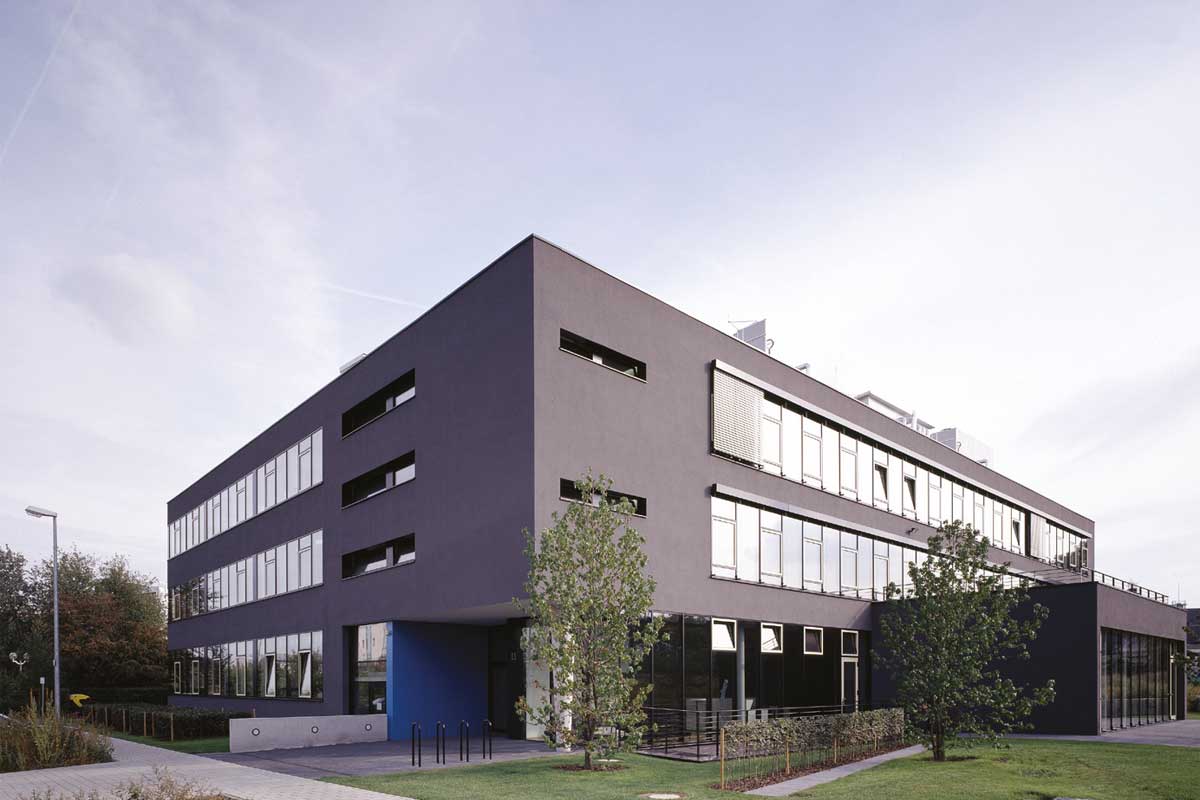
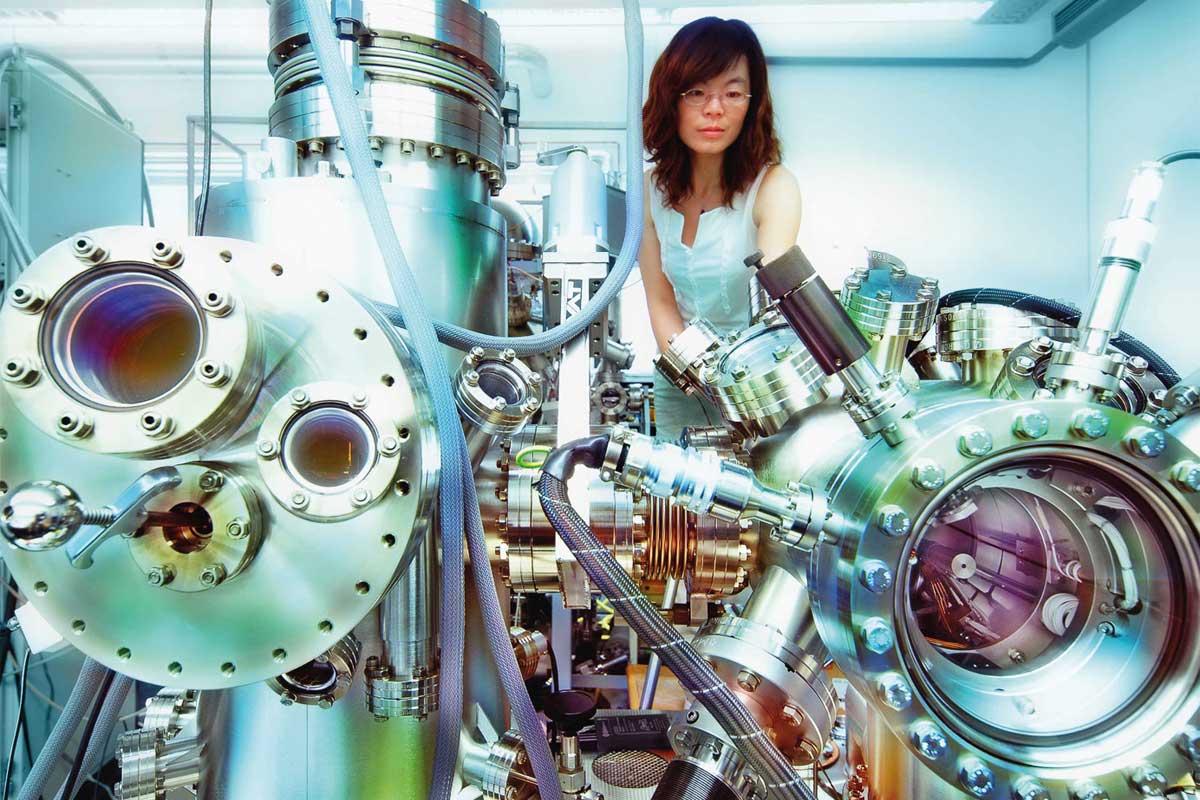
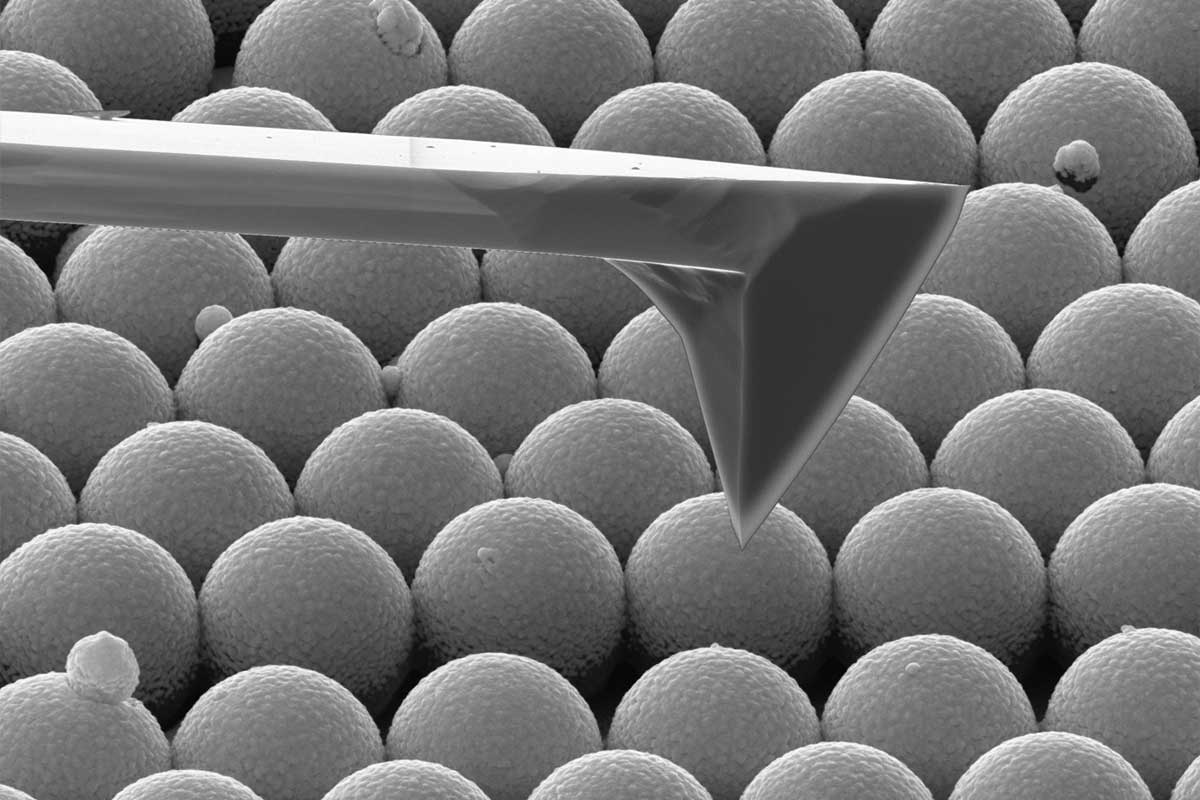
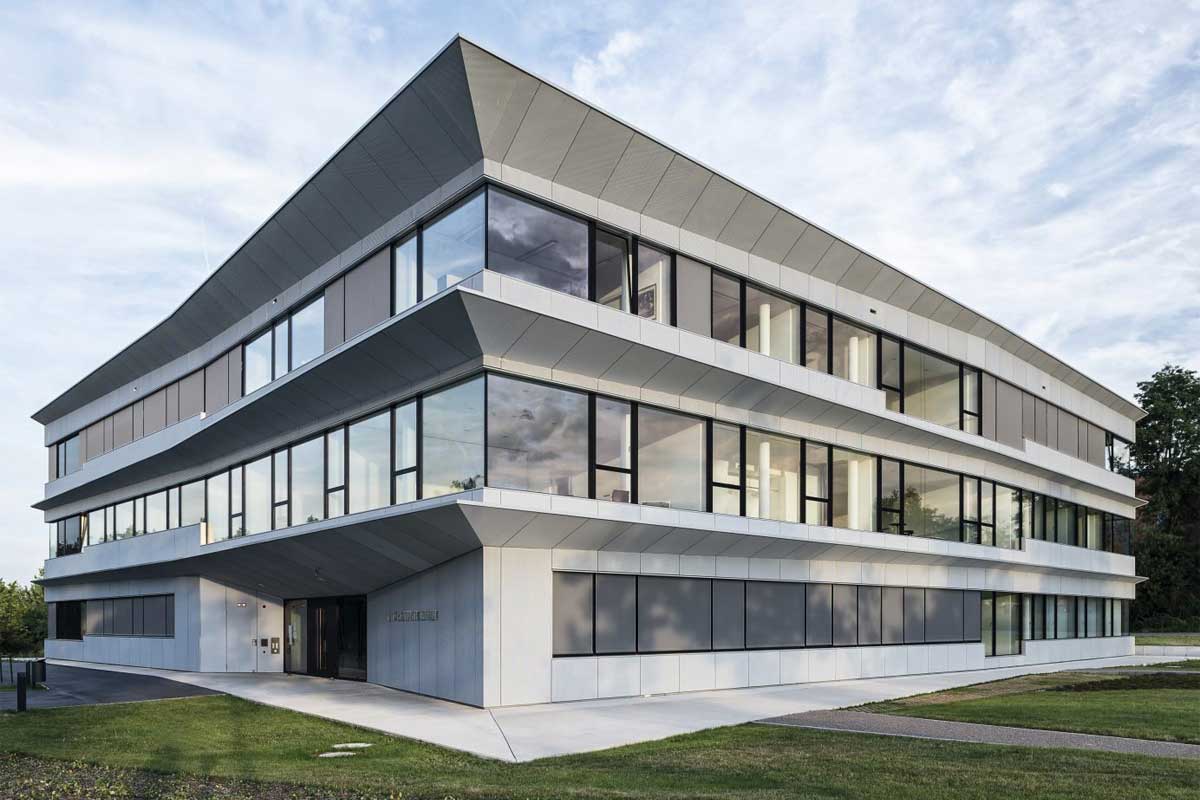
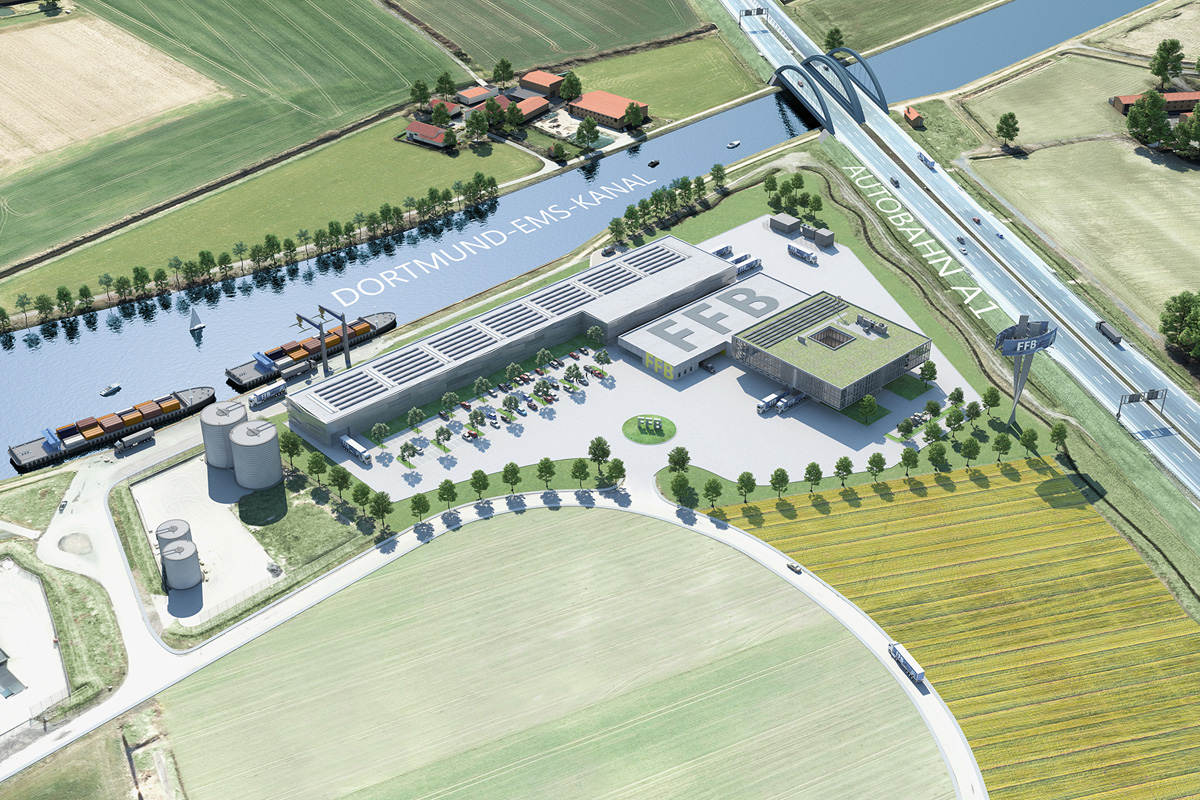
Nanotechnology is for the city and the region of Münster of strategic importance. Nanobioanalytics is one of four strategic topics selected by the “Alliance for Science” to raise the profile of Münster as a city of science and Lifestyle.
To improve the conditions for research development and commercialisation the city of Münster and the two universities joint forces in the “Münster Alliance for Science”. Thereby research and economic development are working hand in hand. In addition, the city of Münster invested in nanotechnology infrastructure. The Centre for Nanotechnology (CeNTech) and Nano-Bioanalytik-Zentrum (NBZ) were co-financed with several million of Euros. At present, in Münster and the Münsterland about 30 companies are involved in Nanobioanalytics employing approximately 1000 people. The University of Münsters is, among others, internationally recognized in the fields of Nanoanalytics and Nanomedicine. Furthermore the Center for Soft Nanoscience (SON) in close proximity to NBZ and CeNTech was opened in 2017. Further renowned research centers in Münster are the Max Planck Institute for Molecular Biomedicine and the MEET (Münster Electrochemical Energy Technology) .
The excellent research at MEET established Münster as an internationally recognized location in the field of battery research. This resulted in the approval of the large-scale project “Research Production of Battery Cells”, through which a center for the development of a modern and scalable battery cell production for Germany and Europe is to be established at the Münster location. The total funding volume amounts to € 700 million
Already Münster had been the venue for large and international conventions in the field of nanotechnology including the international conference NanoBioEurope, the 1st Annual Meeting of the Network of Excellence “Nano2Life” or the Battery Day NRW.
In addition, nano experts from Münster participate in and coordinate a number of national/international projects and networks like the cluster NanoMicroMaterialsPhotonic.NRW, the German platform Nanobiomedicine, the European Technology Platform nanomedicine and the European Nano Characterization Laboratory (NCL EU). All these activities had an impact to promote Münster to one of the leading locations for nanoanalytics and nanomedicine as well as battery research in Europe.



